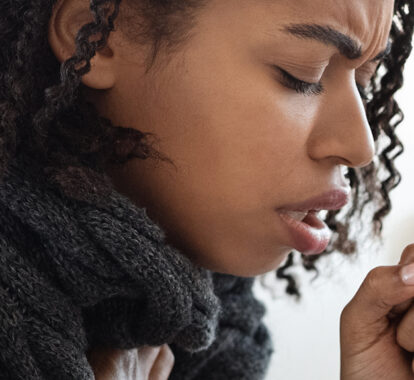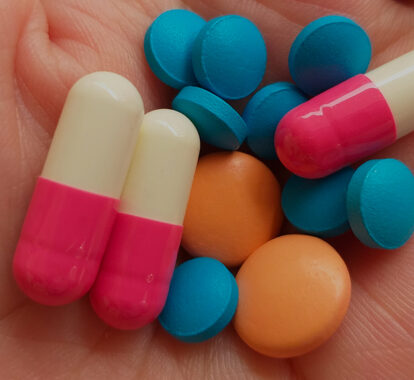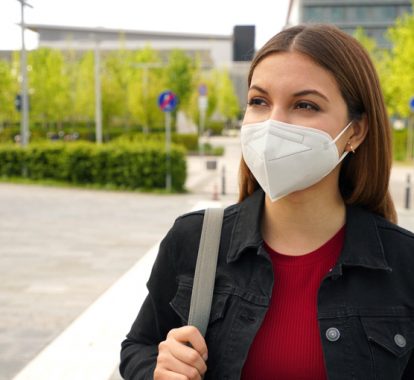I would definitely recommend Texas MedClinic, I was treated kindly and with urgency. I thought I had a bug in my ear and was super nervous, but Dr. Gonzalez and the staff helped me promptly and luckily it was just an infection. They made me feel comfortable and welcome. Thanks for being so nice!!
COVID-19 Testing FAQs
FAQs about Testing in the Time of COVID-19
A great deal of our public attention and private conversations remain focused on testing for COVID-19. We are encouraged by public health and government officials to get tested and that we need increased testing to understand the pandemic to more safely open our society. Unfortunately, many of the messages are short sound bites and are thus confusing. Even the knowledgeable reader/listener must furiously dig for details because some public proclamations can be misleading. This document is an attempt to clarify some of the critical issues around COVID testing to help you determine whether testing is indicated for you, your family, and/or your employees (if you are an employer).
(Updated 1/1/2022)
For those without symptoms, experts agree the ideal time to test is 3-5 days AFTER exposure to identify those persons who may have contracted the virus and will spread it to others unknowingly. A negative test does not, however, change the recommendation to quarantine for 14 days after an exposure. It is not possible to “test out of quarantine”. Fully vaccinated persons who have an exposure do not need to quarantine but are encouraged to be extra careful until they receive a negative test 3-5 days later, because they could possibly spread the virus without having symptoms.
For those with symptoms, the ideal time to test is 1-3 days after the start of symptoms.
Currently there are two major types of tests.
Swab testing, which includes antigen and PCR tests, seeks to identify an active infection. A positive swab test is an indication of current or active infection.
Some patients with the virus and/or a positive swab test have active symptoms (fever, cough, shortness of breath, chills, fatigue, headache, muscle pain, sore throat, shaking chills, or new loss of taste or smell, vomiting or diarrhea) while others have NO symptoms (asymptomatic). In either situation, a patient may test positive and is considered contagious for the disease. A negative test in a symptomatic patient does NOT guarantee they do not have the disease as there can be problems with the specimen collection or lab error.
Antibody tests (AB) seek to determine if a patient had a prior infection, not an active infection. There is antibody test to determine if a patient has had the vaccine for COVID-19 as well.
To learn more about what type of test you need go to https://www.texasmedclinic.com/covid-19-what-test-should-i-get/
Swab testing involves placing a swab into the front part of the nose to collect a specimen. Today many swab tests are performed by the patient or parent while the health care professional monitors to ensure the procedure is followed. Patient self-collections have proven to be effective, require use of less personal protective equipment and are now the primary collection method at most centers.
Antibody tests are performed on blood samples taken by removing a tube of blood from the arm. Finger stick samples for antibody testing are not recommended at this time.
The FDA has not given FDA approval for any COVID-19 test, either swab or antibody. Several tests among the myriad being marketed have been “authorized” by the FDA under a rule known as Emergency Use Authorization (EUA). They were seen to be valuable and reliable enough in the pandemic so that they were authorized before the more extensive approval process. The technology used in developing these tests is not new, just new for COVID-19 testing. It is used already in flu testing, for example.
You should ensure that the provider of your test (either antigen or PCR swab test or antibody test) has received FDA EUA before undergoing the test.
Most antigen swab tests, or rapid tests, are performed inhouse. This applies to both specimen collection and performing the actual test.
The swab for PCR tests is performed inhouse, but specimens are sent to a lab for detection of the virus.
Antibody or AB tests are performed through a blood draw in a clinical setting. The specimen is sent to a lab for detection. Therefore, those considering AB testing should ensure their blood is sent to a lab. Results from finger stick or rapid AB tests are considered unreliable.
Rapid antigen tests are performed entirely within a clinic setting using a fluorescent immunoassay analyzer for the rapid detections of SARS-CoV-2 in a nasal swab specimen. The results are available in as little as 15 minutes.
The test is named Sofia® 2 SARS Antigen FIA and is produced by the Quidel Company. It was the first company to receive FDA EUA. The accuracy of this test for both positive and negative results has been shown to equal a lab tested swab or PCR test during the time symptoms are present. The authorization for this test is for symptomatic patients in the first five days of their illness.
- Individuals with signs or symptoms consistent with COVID-19
- Individuals with recent known or suspected exposure to SARS-CoV-2
- Asymptomatic individuals without known or suspected exposure to SARS-CoV-2 for early identification in special settings
- Individuals being tested for purposes of public health surveillance for SARS-CoV-2
A positive antigen test means the person tested has the virus, has an active infection, and, in most cases, should be considered actively contagious to others. As such, they should be in isolation. Occasionally a PCR test will be used to confirm a positive rapid test result. There is evidence that PCR and antigen tests can remain positive after contracting COVID-19 for up to 3 months in some patients, even though they are not contagious. Those who tests positive should follow the advice of their physician or health care advisor regarding ending their isolation.
Unfortunately, the answer to this question is unclear. A positive antibody test is presumed by many to indicate a person has developed resistance and is thus immune to a repeat COVID-19 infection. While some evidence suggests protection due to natural immunity, we do not know what level of antibodies prove whether a person is immune or not. Even with vaccines we cannot use antibody levels alone to tell how well the vaccine will work. More time and more research are necessary to understand the meaning of a positive antibody test with COVID 19.
The public has a great deal of curiosity about antibody testing and many want to “know my status”. However, if tested, a positive test should NOT be a license to take increased risks with one’s own health or that of others. A positive test should NOT be used to discontinue or reduce social distancing, hand washing or use of masks. Until we know more about antibody testing, the behavior of both the positive antibody group and the negative antibody group should remain the same as it has been since the beginning of this disease process.
An AB test CANNOT be used to determine whether a person does or does NOT have a current infection with COVID-19, this is determined by the nasal swab tests.
With or without symptoms if you test positive, you must isolate until all three of the following criteria are met:
- At least 10 days have passed since symptoms first appeared and
- At least 24 hours have passed since last fever without the use of fever-reducing medications and
- Symptoms (e.g., cough, shortness of breath) have improved
A negative test should be interpreted by your health care provider since false negatives can occur. A patient testing negative, in the face of symptoms should follow the same return to life guidelines as for the positive test results.
You should discuss your concerns and questions with the provider you see when you come in for testing.
An antibody test may or may not be considered a covered service by most insurance carriers. However, given there is no current medical indication, it is not clear if carriers will pay for all or part of the test. They may determine this is 100% patient responsibility. As such there may be a direct cost to the patient for the test and any associated medical evaluation.
If deciding to undergo AB testing it is important to find a reputable medical office to provide the test. This will include obtaining a blood specimen and sending that specimen to a lab for testing. Office based AB test are not considered reliable, nor are all lab-based AB tests. Expect results to take about 48 hours.
CDC does NOT recommend that employers use antibody tests to determine which employees can work. Antibody tests use a blood sample to determine a past infection with SARS-CoV-2, the virus that causes COVID-19. Viral tests check a respiratory sample (such as swabs of the inside of the nose) for current infection with SARS-CoV-2.
CDC has published strategies for consideration of incorporating viral testing for SARS-CoV-2 into a workplace COVID-19 preparedness, response, and control plan.
Swab testing for the presence of the virus is merely a snapshot of a moment in time. A negative test today does not ensure the person will remain negative tomorrow, or in one or two weeks. In fact, VERY early in the course of the disease it is possible a person is “incubating” (in the process of developing the infection after an exposure) but the virus is not detectable by testing. Except in certain unique situations, it is also not practical to test employees repeatedly.
No, as of July 16th the CDC no longer recommends any routine test of cure after a positive before a person returns to their normal environment. Provided the 3 criteria of at least 10 days since onset of symptoms, no fever for 24 hours and symptoms improving have been met repeat testing is unnecessary. Not only is it waste of scarce resources, but the evidence shows that those persons who continue to test positive are no longer contagious. They merely have viral remnants that cannot infect other present in their secretions. Further, the Families First Coronavirus Act has clarified that employer required testing is not included in the no cost sharing by patients. Thus, someone other than the carrier, will need to pay for this type of testing. To learn more, go to https://www.texasmedclinic.com/return-to-work-covid-testing-undercuts-a-precious-resource/
The Center for Disease Control and local metropolitan health districts are the primary up-to-date sources for more information. Individuals may wish to consult with their personal physician or health advisor. If none is available, please visit our website at www.texasmedclinic.com to schedule a visit time and meet with a physician expert.
Employers may wish to obtain consulting services from an expert who can evaluate the details of their unique business. Please contact our Director of Business Development and Marketing, Leah Martinez at lmartinez@texasmedclinic.com or 210-349-5577, Ext 8521 for more details and to learn about options and pricing.





